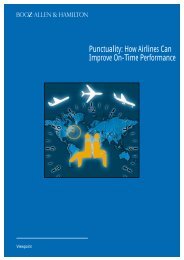The sentence
The sentence
The sentence
You also want an ePaper? Increase the reach of your titles
YUMPU automatically turns print PDFs into web optimized ePapers that Google loves.
Nouns<br />
A. One-word nouns<br />
Noun endings: people who do things/people who come from places<br />
1. We use some words only as nouns: e.g. desk, hat, tree, etc.<br />
2. However, we often make nouns from other words by adding different endings or suffixes<br />
and sometimes making other small changes. For example, if we add –er to a verb like play,<br />
we get the noun player, if we add –ity to the adjective active, we get the noun activity.<br />
<strong>The</strong>re is no easy rule to tell us which endings to use to make nouns.<br />
3. Typical endings which make nouns:<br />
people who do things: actor, assistant, beggar, driver, engineer, historian, pianist.<br />
people who come from places: Athenian, Berliner, Milanese, Muscovite, Roman.<br />
Nouns formed from verbs, adjectives, other nouns<br />
1. Some nouns have the same form as verbs: act, attempt, blame, book, call, capy, cost,<br />
dance, fall, fear, help, joke, kiss, laugh, try, vote, wait, walk, wash.<br />
2. Typical endings which make nouns from:<br />
- verbs: acceptance, agreement, arrival, behaviour, discovry, knowledge, possession.<br />
- adjectives: absence, activity, anxiety, constancy, happiness.<br />
- other nouns: boyhood, kingdom, lunacy, mouthful, sexism.<br />
And note –ing forms used as nouns: I’ve given your shirt an ironing.<br />
Nouns and verbs with the same spelling but different stress<br />
1. With some words, when the stress is on the first syllable, the word is a noun.<br />
When the stress is on the second syllable, it is a verb. <strong>The</strong> meanings are related:<br />
noun: We have finished Book 1. We have made good ‘progress’<br />
verb: We are now ready to progress to Book 2.<br />
2. <strong>The</strong> meanings can also be quite different:<br />
noun: My son’s conduct at school hasn’t been very good.<br />
verb: Mahler used to conduct the Vienna Philharmonic.<br />
B. Compound nouns<br />
Nouns formed with gerund (‘-ing’) + noun: ‘dancing – shoes’<br />
1. When a noun has two or more parts (e.g. classroom), we call it a compound noun.<br />
We can make compound nouns with the –ing form: e.g. dancing - shoes<br />
2. <strong>The</strong> –ing form can sometimes be an adjective:<br />
Can you see that ‘dancing’ couple? (= couple that is dancing)<br />
When the –ing form is an adjective, we stress both words and never use a hyphen.<br />
3. <strong>The</strong> –ing form can be the first part of a compound noun:<br />
I need a pair of ‘dancing – shoes. (= shoes used for dancing; not ‘shoes that are dancing’)<br />
When the –ing form is a noun, we stress the first word only and a hyphen is optional.<br />
12




